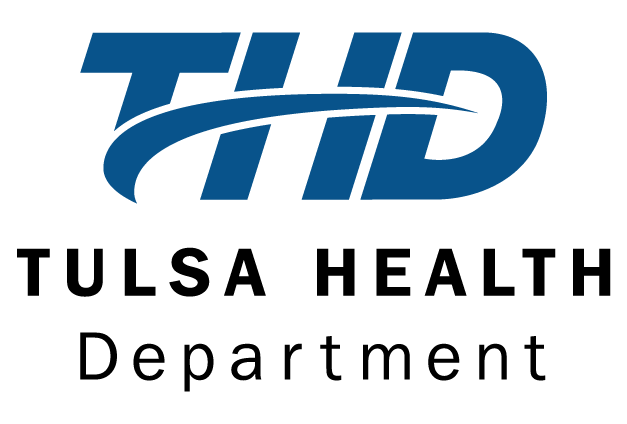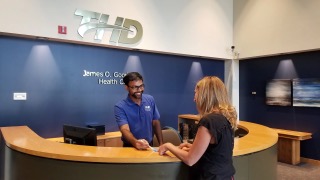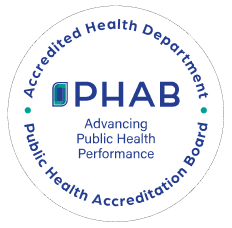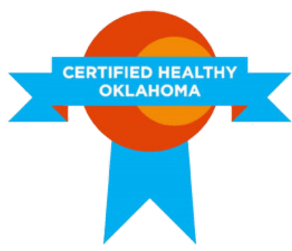TULSA, OK – [April 6, 2016] – Tulsa County was recently recognized as an Innovator City in the Healthiest Cities and Counties Challenge. The Challenge is an opportunity for local governments to build cross-sector partnerships that lead to health innovations and data-driven solutions.
On Monday, the Aetna Foundation, the American Public Health Association (APHA) and the National Association of Counties (NACo), in partnership with CEOs for Cities, announced the launch of the Healthiest Cities & Counties Challenge, which will award $1.5 million in prizes to cities, counties and federally recognized tribes that show measurable improvements in health indicators and social determinants of health.
“We are pleased to have been recognized as an early adopter in this challenge. This recognition is a testament to the collaborative efforts ongoing across Tulsa County to make this a healthier place to live, work and play,” said Dr. Bruce Dart, executive director at the Tulsa Health Department.
Participating cities, counties and tribes will focus on at least one of five domains: Healthy behaviors, community safety, built environment, social/economic factors and environmental exposures. Within those domains, participants will be judged based on a variety of metrics already in use within the public health field. Challenge participants will also be evaluated on their ability to form cross-sector partnerships — a key ingredient and a critical foundation for sustainable and lasting change. An expert advisory board has been selected to judge the finalists of the Challenge including the Centers for Disease Control (CDC), AARP and the Urban Land Institute.
“This Challenge is designed to help our cities and counties create an environment that fosters productive, happy human beings,” said Mark Bertolini, chairman and CEO of Aetna. “By improving living conditions, access to healthy foods, education and job opportunities, we can build a healthier world.”
The Tulsa Health Department collaborated with local community partners to submit an early adopter proposal. Partners included the Tulsa Regional Chamber, University of Oklahoma – Tulsa, R & G Mobile Grocers and Civic Ninjas. The Tulsa County proposal will address food insecurity issues, including access and proximity to grocery stores and fresh fruits and vegetables.
The majority of an individuals’ health is determined by their social, environmental, and economic exposures. A collective approach to the social determinants of health is essential to ensure a thriving community which creates social and physical environments that promote good health for all residents.
“Rising health care costs and increasing concern about the health of Oklahoma’s workforce have created serious challenges to economic growth, and Tulsa’s regional business community cannot afford to sit on the sidelines. The future of our citizens’ health in Tulsa is the future of our city itself, and we believe Tulsa’s participation in the Healthy Cities Challenge is a necessary step toward a brighter future,” said Mike Neal, president and CEO of the Tulsa Regional Chamber.
Another central goal of the Challenge is to collect successful health improvement strategies that can be tailored and replicated throughout the country. In fact, Challenge participants will be able to share experiences and best practices throughout the process via a learning network.
Tulsa joins several other cities and counties that have already selected to participate in the Challenge as early adopters. Their proposals offer ways to provide access to fruits and vegetables, reduce tobacco use and exposure, combat crime and violence, and increase leadership and civic engagement. These Innovator Cities include:
San Diego County, California
Lead Entity: County of San Diego Health and Human Service Agency
Kansas City, Missouri
Lead Entity: City of Kansas City Health Department
New Haven, Connecticut
Lead Entity: City of New Haven Health Department
Cleveland, Cuyahoga, Ohio
Lead Entity: Cleveland Department of Health
Durham and Cabarrus, North Carolina
Lead Entity: Duke University
“The big health threats we face today can’t be solved by one sector alone,” said APHA Executive Director Georges C. Benjamin, MD. “Instead, we need to build partnerships that reflect the many societal factors that impact our health and our opportunity to make healthy choices. Whether it’s affordable housing, community violence or safe drinking water, multi-sector partnerships coupled with community-driven leadership have the potential to transform the way we think about good health and well-being.”
###






